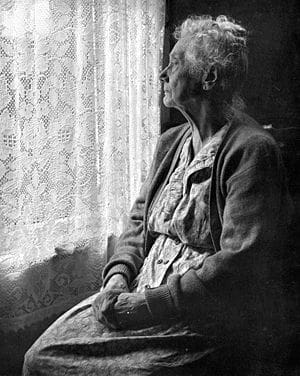Loneliness kills!
It’s true. Recent scientific studies have demonstrated beyond any reasonable doubt that loneliness is a significant factor in accelerating the death of older adults. Independent research studies by both the University of California and Brigham Young University in Utah came to the same conclusion.
According to their published research, The U of C study, conducted among senior adults with an average age of 71, found that approximately half of those who reported feeling lonely or isolated died or suffered significant health declines by the end of the study period. In stark contrast, among seniors who said they were happy or satisfied with their social lives, only about 27 percent died or experienced declining health. By any measure, these results are stunning.
Likewise, the Brigham Young study analyzed data for more than 300,000 people and found that loneliness was “as strong a factor for early death as alcoholism and heavy (more than 15 cigarettes a day) smoking.”
Further, a Dutch study published in the Journal of Neurology, Neurosurgery, and Psychiatry reported that individuals who lived alone or who were no longer married were between “70 percent and 80 percent more likely to develop dementia than those who lived with others or were married.”
Exploring the Loneliness Epidemic in Our Society
A recent article by Melanie Haiken, Caring.com senior editor, entitled “The Risks of Loneliness and Senior Neglect” https://www.caring.com/caregivers/elder-abuse/, delves further into the issue of loneliness and its implications for society.
Ms. Haiken points out that with one of out of eight Americans now over 65, and accounting for more than 41 million people as of 2012, loneliness and isolation are becoming hot-button issues for all of us. She cites the following relevant facts from the Administration on Aging:
- 28 percent of Americans over 65 live alone; for women, it’s a startling 46 percent.
- While 72 percent of men over 65 are married, only 45 percent of women are married; 37 percent are widows.
- Almost half of women over 75 live alone.
An Uncomfortable Issue to Confront
For many adult children of aging parents, this can be a very difficult and unsettling time of life. They’re concerned about their loved one, but not sure what to do, and it can be a very uncomfortable topic to bring up. Many senior adults are too proud to admit they are lonely. Many also cling to the familiar surroundings of their past life where the majority of their memories reside — even if it means being isolated and lonely.
As Ms. Haiken suggests, if you’re concerned about an older family member being lonely, your worries are probably well founded. Isolation and loneliness are principal signs that your loved one may be at risk of falling into rapid decline.
The good news for senior living communities is that they are, by their very nature and purpose, a “lifestyle prescription” for loneliness designed to keep seniors socially engaged, active and healthier in mind, body and spirit. Senior living options clearly represent solutions to the recommendations Ms. Haiken offers in her article.
Tips for Avoiding the Dangers of Loneliness
- Encourage your loved to avoid living alone – As noted previously, studies clearly show that seniors who live alone are at risk for many more health problems than those who are married or living in a group environment. It is simply unhealthy!
- Arrange for transportation – Lack of transportation is a primary factor behind social isolation. Since many older adults no longer feel comfortable driving, they suffer a loss of independence and the ability to engage with the outside world. Arranging for periodic transportation to places your loved one enjoys can help reduce the feelings of being “cut off” from the world.
- Help your loved one to find group activities – Participating in activities your loved one enjoys and doing it with others is another key ingredient for reducing loneliness and its harmful effects. Whether its cards, board games, walking or other favorites, engaging with others provides a host of physical, mental (brain) and emotional benefits.
- Introduce your loved one to social media – Today, social media sites such as Facebook make it simple for anyone to feel more connected. Knowing what your loved one’s major interests are and showing them how to get connected can open new doors to the outside world.
Implications for Senior Living Providers
Physical and mental decline, as well as death resulting from isolation and loneliness, is very real and increasingly prevalent issues in our society today. As uncomfortable as they may be to discuss, they are relevant, legitimate topics for public education and communication today—whether it be through your literature, seminars and events, or one-on-one discussions with prospective customers. If your community requires additional support to optimize the impact of your communications and marketing initiatives, be sure to look for an experienced organization that operates exclusively in the senior living marketplace and has the specialized expertise and experience in senior living marketing solutions required to succeed.

0 Comments